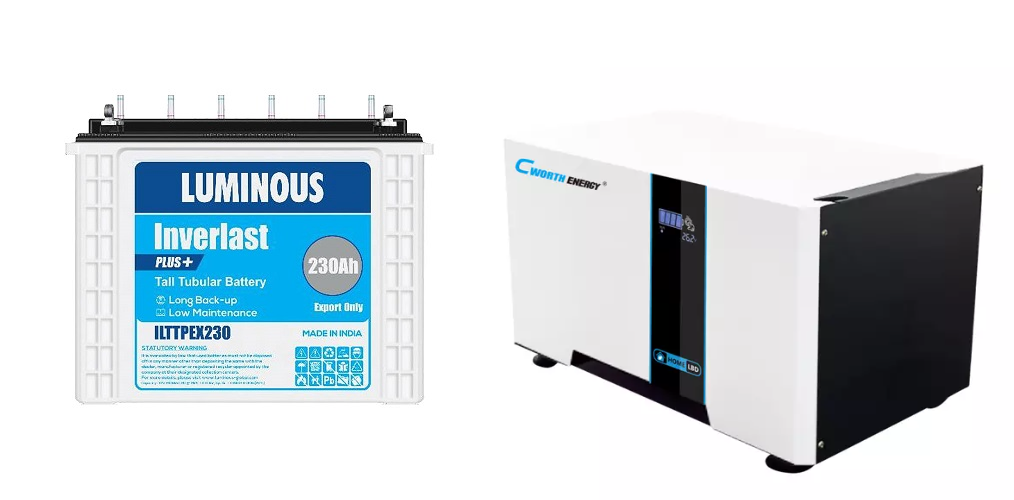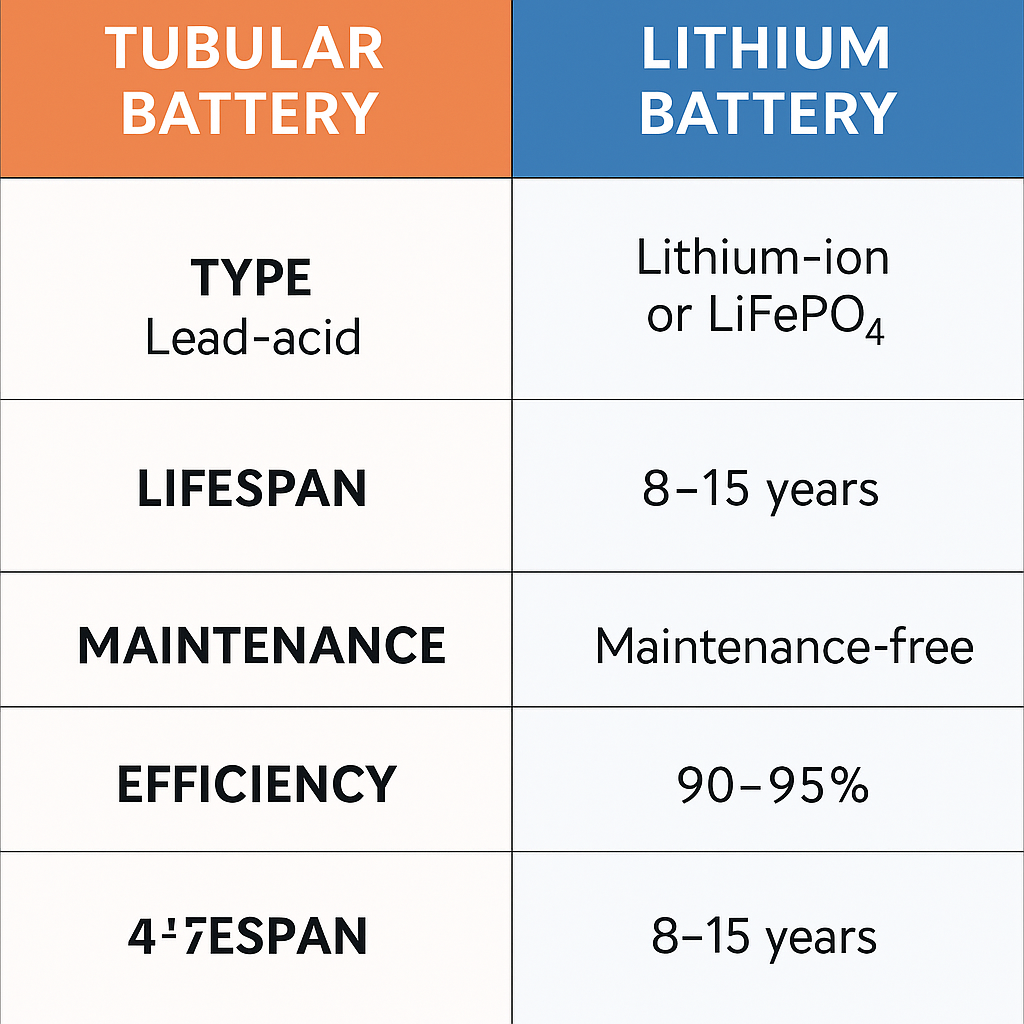
Tubular battery Vs Lithium battery
Tubular Battery vs. Lithium Battery – Which is Better?

Both tubular and lithium batteries are popular for backup power systems, solar installations, and inverters, but they differ in technology, performance, and cost.
1. Tubular Batteries
- Type: Lead-acid battery with a special tubular plate design.
- Lifespan: 4–7 years with proper maintenance.
- Maintenance: Requires regular topping up with distilled water.
- Efficiency: 70–80% round-trip efficiency.
- Advantages:
- Lower upfront cost than lithium.
- Handles high current draw well.
- Readily available in many local markets.
- Disadvantages:
- Heavy and bulky.
- Needs frequent maintenance.
- Slower charging speed.
2. Lithium Batteries
- Type: Lithium-ion or LiFePO₄ (Lithium Iron Phosphate).
- Lifespan: 8–15 years, depending on usage.
- Maintenance: Maintenance-free.
- Efficiency: 90–95% round-trip efficiency.
- Advantages:
- Longer lifespan and higher efficiency.
- Lightweight and compact.
- Charges faster and supports deeper discharge (up to 90–100%).
- Disadvantages:
- Higher upfront cost.
- Requires a good Battery Management System (BMS) for safety.
Which is Better?
- For long-term, low-maintenance, high-performance systems, Lithium batteries are better. They cost more upfront but last longer and perform better over time.
- For lower upfront budget and moderate use, Tubular batteries are a solid choice, especially in places where maintenance and distilled water are easy to manage.
Bottom line:
If you can afford the initial investment and want minimal hassle, go for lithium. If budget is tight and you’re okay with regular maintenance, tubular can still serve you well.
Tag:Solar, tubular battery

